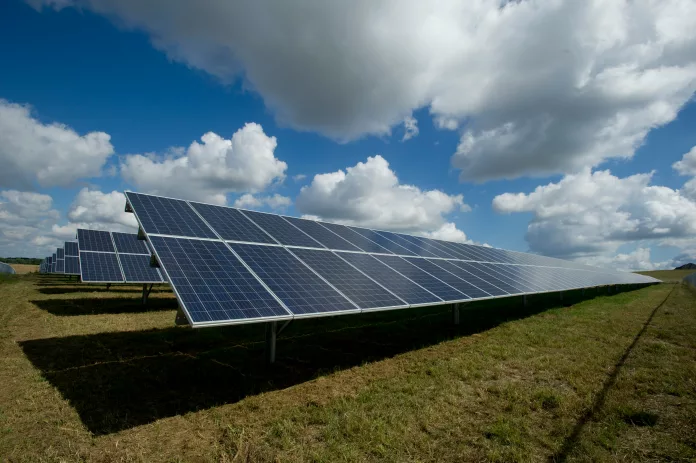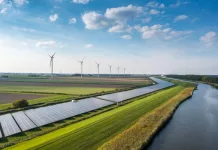West Virginia is witnessing a transformative moment with the recent activation of the first solar farm out of a planned five across the state. This development marks a significant turn for an area traditionally dominated by coal.
Fort Martin Power Station’s Solar Array
In the northern reaches of Morgantown, nestled on 80 acres at Fort Martin Power Station, a groundbreaking solar farm has emerged, thanks to subsidiaries Mon Power and Potomac Edison. With a 50,000-panel array capable of producing 18.9 megawatts (MW), it represents the initial step in a broader initiative to harness the sun’s energy for the state’s benefit.
Expansion Plans and Anticipated Impact
The plan, embraced by the West Virginia Public Service Commission (PSC), extends to additional locations in Rivesville and Marlowe with proposed collective capacities of over 11 MW. The ambitious project foresees completion of these installations by the end of 2024. Furthermore, aspirants for the fourth and fifth solar farms in Davis and Weirton will seek final approvals later in the year, aiming for an operational status by the end of 2025. Together, these sites will contribute up to 50 MW of clean, sustainable power to the West Virginian grid.
West Virginia’s Energy and Employment Shift
Traditionally a bastion of coal, both as a power source and an employer, West Virginia is navigating a significant shift. Coal mining jobs have dwindled, nearly halving over a decade, a trend reflective of the nation’s pivot toward renewable energy sources.
Notably, this transition to renewable infrastructure, as exemplified by the solar farm at Fort Martin, involved local labor and U.S.-sourced materials, illustrating a commitment to domestic industry and workforce development.
Enhancing West Virginia’s Renewable Energy Profile
Up until recently, West Virginia’s solar footprint was a mere 35 MW—a number that positioned them 49th in the U.S. for solar implementation, accounting for a scant 0.08% of the state’s electrical mix. However, the addition of these new solar farms is expected to not only add 50 MW of capacity but also contribute to a projected 517 MW increase in solar capacity over five years. This growth could elevate West Virginia to 45th in the national rankings.
This progress, though modest relative to other states, is a crucial step forward for West Virginia. In embracing the inevitability of change, the state is planting seeds for a more sustainable and diverse energy portfolio, reflecting both the evolution of the global energy landscape and a forward-thinking approach to economic and environmental adaptation.

























